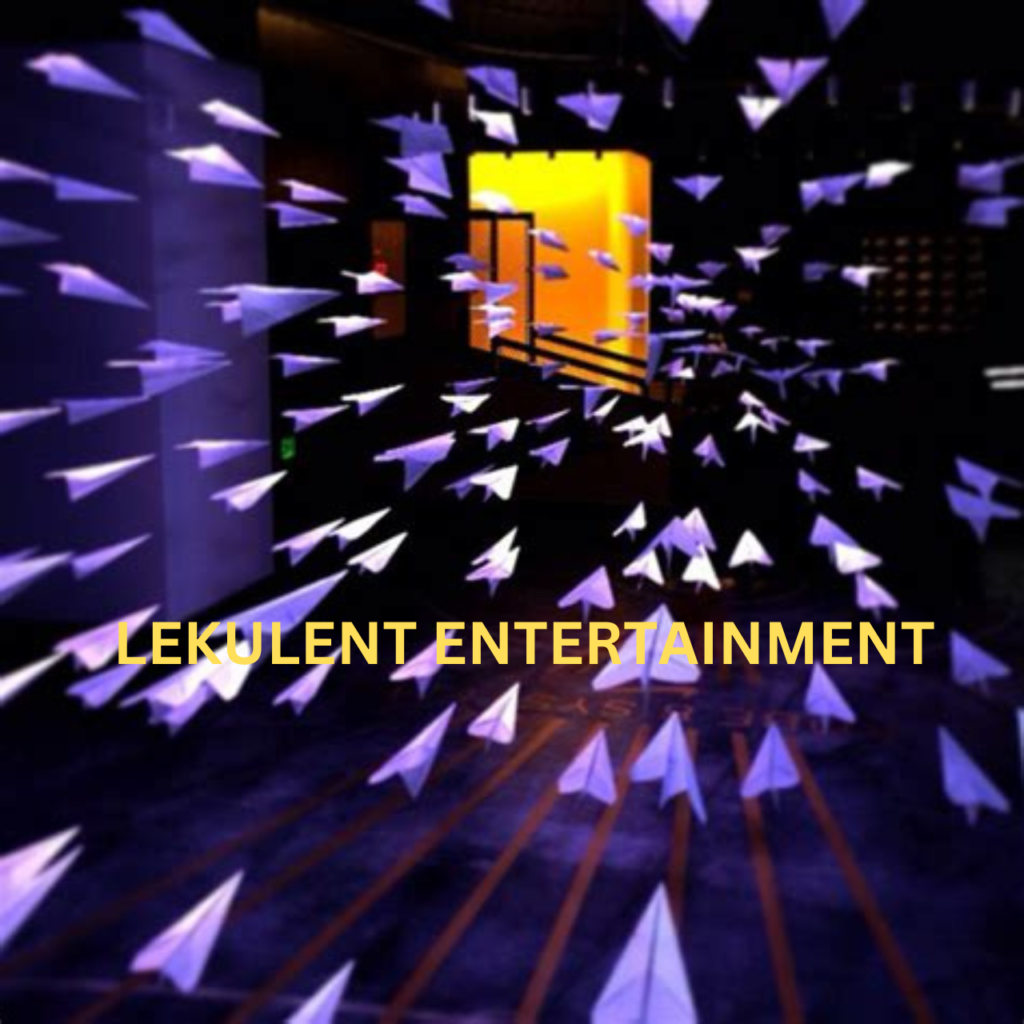In the rapidly evolving entertainment industry, staying relevant while creating innovative content is a major challenge. One name that has emerged in recent years is Lekulent Entertainment, a company that promised to shake up the entertainment landscape with fresh ideas and a bold creative vision. However, as we step into 2024, questions are being raised about whether Lekulent Entertainment has lived up to its potential. Is it truly a creative powerhouse, or has it become a missed opportunity in a competitive industry?
The Rise of Lekulent Entertainment
Lekulent Entertainment started with a vision: to break away from traditional content creation models and offer something new to audiences. Launched in the late 2010s, the company quickly garnered attention for its innovative approach to storytelling, blending multimedia platforms, and experimenting with cross-genre narratives. By 2021, the company was producing short films, interactive media, and immersive experiences that challenged the conventional boundaries of entertainment.
Early success stories included a series of web-based interactive dramas that allowed users to choose the outcomes of various plotlines, creating a personalized experience for each viewer. This “choose-your-own-adventure” format resonated with younger audiences who craved more interactive content. Critics praised Lekulent for their ambition and willingness to take creative risks, positioning the company as one to watch.

The Creative Powerhouse Claim
Lekulent Entertainment’s creative vision has always been one of its defining features. From the outset, the company prided itself on pushing the boundaries of storytelling and exploring new ways of engaging audiences. Their productions often experimented with narrative structure, integrating technology and interactivity in ways that felt fresh and exciting.
1. Innovative Storytelling: One of the hallmarks of Lekulent Entertainment’s early success was their ability to weave complex, nonlinear narratives across multiple platforms. Their projects often allowed users to experience the same story through various mediums—short films, video games, podcasts, and even virtual reality. This transmedia approach drew in a loyal fan base that appreciated the depth and creativity behind the content.
2. Diversified Content: Lekulent didn’t shy away from tackling various genres and themes, producing content that ranged from sci-fi thrillers to intimate dramas. Their approach to diversity extended to both the types of stories they told and the talent they worked with. Lekulent has been known for its inclusive approach, ensuring that underrepresented voices had a platform to share their stories.
3. Interactive Media: In a world where passive viewing is becoming a thing of the past, Lekulent capitalized on the growing demand for interactive content. Projects that allowed audience participation—whether through voting on character decisions or experiencing storylines in VR—set Lekulent apart from more traditional entertainment companies.
Challenges and Shortcomings
Despite the promise and creativity, Lekulent Entertainment hasn’t been immune to the challenges of running a modern media company. Some industry insiders argue that the company’s ambition might have overextended its resources, leading to missed opportunities and underwhelming results in recent years.
1. Scaling Problems: Lekulent’s bold creative visions have not always translated into sustainable business models. While their interactive and transmedia projects generated buzz, they were often costly to produce. As a relatively small company, Lekulent struggled to scale these projects effectively, leading to delays and, in some cases, incomplete or underwhelming experiences.
2. Inconsistent Quality: While Lekulent has produced some standout projects, not all of their content has hit the mark. Some productions were criticized for sacrificing storytelling quality for the sake of experimentation. For example, a few of their VR experiences, while visually impressive, were seen as lacking in depth and narrative coherence, leading to mixed reviews from both critics and audiences.

3. Lack of Focus: In trying to do too much, Lekulent may have spread itself too thin. The company’s diversification into multiple forms of media—from film and television to gaming and virtual reality—made it difficult for them to excel in any one area. This lack of focus might be one reason why some of their recent projects have failed to capture the same level of attention as their early successes.
4. Competitive Market: The entertainment landscape has become increasingly crowded, with major players like Netflix, Disney+, and interactive platforms such as Twitch and YouTube dominating the market. Lekulent’s innovative approach, while refreshing, has struggled to compete against these industry giants, particularly when it comes to securing funding, marketing, and distribution for their projects.
Missed Opportunity?
As we head into 2024, it’s clear that Lekulent Entertainment has faced its fair share of hurdles. Many in the industry are now asking if the company is a creative powerhouse that simply needs more time to mature or if it has already missed its opportunity to make a lasting impact.
While Lekulent has produced some groundbreaking work, it has yet to achieve the mainstream success that some expected. The company’s penchant for experimentation has sometimes backfired, leading to projects that feel half-baked or lacking in broad appeal. Additionally, financial struggles and production delays have plagued some of their more ambitious ventures, leading to frustration among both fans and investors.
That being said, Lekulent’s contributions to the world of interactive media and transmedia storytelling shouldn’t be overlooked. Their willingness to push boundaries has inspired other companies to experiment with new formats and rethink traditional modes of storytelling. Lekulent may not be dominating the industry, but they’ve played a role in shaping the future of entertainment.

2024 and Beyond: What’s Next for Lekulent Entertainment?
Looking ahead, Lekulent Entertainment still has the potential to turn things around. To do so, they may need to focus more on streamlining their operations and honing in on the types of projects that resonate most with audiences. The demand for interactive and immersive media continues to grow, and with the right strategy, Lekulent could still carve out a niche for itself in this evolving landscape.
They may also benefit from partnering with larger studios or platforms to secure the funding and distribution channels needed to bring their projects to a wider audience. If Lekulent can learn from its past mistakes and capitalize on its strengths, it may yet prove to be a creative powerhouse in the years to come.
Conclusion
Lekulent Entertainment remains a company with great potential, but whether it will fulfill that potential remains to be seen. In 2024, it stands at a crossroads: it can either refocus and solidify its place as a leader in creative and interactive content, or it may continue to struggle, missing out on the opportunity to truly reshape the entertainment industry. Only time will tell which path Lekulent ultimately takes.
